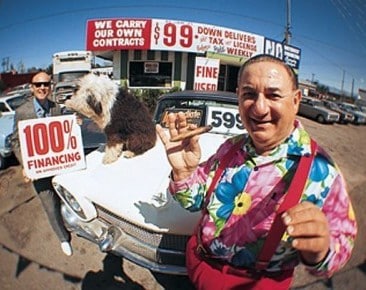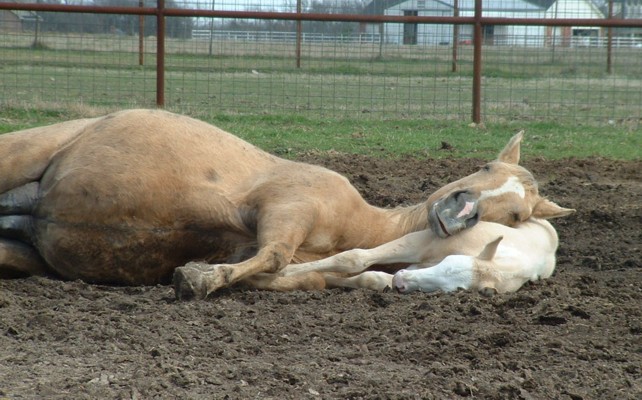There’s no question that when it comes to horses – and to themselves – people are buying dietary supplements by the boatload. A just-released study in the prestigious Journal of the American Medical Association found that about half of the 38,000 people who completed an interview between 2011 – 2012 used a dietary supplement, which is about unchanged from interviews conducted between 1999 – 2000. There were some minor changes, but overall, people gobbled up supplements like candy.
It’s probably about the same in horse owners, if not more. In fact, a 2015 Master’s Thesis submitted at Middle Tennessee State University, concluded, “Most horseowners, regardless of discipline or competitive status, report giving supplements and indicate belief in their safety and efficacy.”
My question is, “Why?” I thought I’d explore that a bit.
When it comes to dietary supplements, it can get confusing. It’s not like there’s one thing that is a supplement. You’re talking about vitamins and minerals to be sure, but also digestive stabilizers and hoof improvers and immune system boosters and joint protectors and plants and probiotics and prebiotics and fish oils and corn oils and cottonseed oils and…. well, I think you get the point. Still, they all have one thing in common. Except in very specific circumstances, it’s been pretty a pretty remarkable and nearly unanimous consensus from a virtual parade of scientific studies (mostly in human medicine, but also in horses) that:
- There really aren’t any health benefits
- They can occasionally cause harm (mostly in humans)
- They often don’t contain what they say they contain
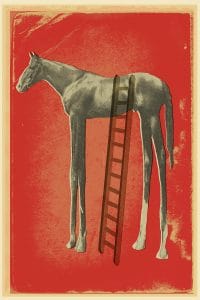 Before anyone gets on their supplemental high horse, I absolutely want to acknowledge that in certain specific circumstances, dietary supplementation can be a very good thing. If a horse has a vitamin deficiency, such as vitamin E (which occurs occasionally), there’s not much better for him that getting him some extra vitamin E. Ditto selenium, a mineral which is deficient in certain parts of the United States, (for those of you that are interested, here’s a link to a map showing selenium levels by county in the connected 48 states – can you imagine the tedium of putting this thing together?).
Before anyone gets on their supplemental high horse, I absolutely want to acknowledge that in certain specific circumstances, dietary supplementation can be a very good thing. If a horse has a vitamin deficiency, such as vitamin E (which occurs occasionally), there’s not much better for him that getting him some extra vitamin E. Ditto selenium, a mineral which is deficient in certain parts of the United States, (for those of you that are interested, here’s a link to a map showing selenium levels by county in the connected 48 states – can you imagine the tedium of putting this thing together?).
But even in the relatively rare instance where dietary supplementation is actually useful, they are still often overused. Plus, they are generally self-prescribed, that is, most folks using supplements are doing so based on things like advertisements and pretty packaging, and not because of good medical (or veterinary medical) advice. So, with specific exceptions, you can confidently say that for the vast majority of horses, supplements don’t do anything except increase the cost of care for their owners.
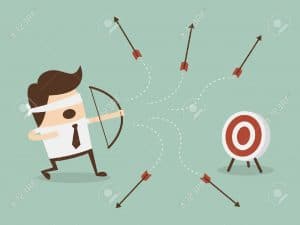 The JAMA study covered a 13 year period where, in human medicine, a lot of money was poured into investigating whether dietary supplements actually did anything. Hold onto your hat, but during that time the US government, through the National Institutes of Health, spent something like $300 million per year doing research on how dietary supplements affected human health. Studies were published, articles were printed, talk show seats were occasionally filled (not Dr. Oz, of course), and the conclusions were a pretty much unending stream of bad news for the supplement companies. Most of the studies using supplements failed to show any health benefit, whether it be glucosamine for arthritis or Vitamin C to treat colds or various vitamins to treat various cancers. Mostly, supplements didn’t do anything, or worse, caused harm. Period.
The JAMA study covered a 13 year period where, in human medicine, a lot of money was poured into investigating whether dietary supplements actually did anything. Hold onto your hat, but during that time the US government, through the National Institutes of Health, spent something like $300 million per year doing research on how dietary supplements affected human health. Studies were published, articles were printed, talk show seats were occasionally filled (not Dr. Oz, of course), and the conclusions were a pretty much unending stream of bad news for the supplement companies. Most of the studies using supplements failed to show any health benefit, whether it be glucosamine for arthritis or Vitamin C to treat colds or various vitamins to treat various cancers. Mostly, supplements didn’t do anything, or worse, caused harm. Period.
At the same time as the negative news was piling up, newspapers were getting filled up with reports of such not-so-good things as heart attacks, strokes, and poisonings, to name a few of the problems. You’d think that the combination of negative scientific studies and the reports of really bad stuff happening might have depressed the use of all of these products,
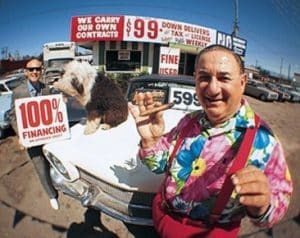 ASIDE: How’s this strike you as a line for a used car salesman? “Well, the car doesn’t work very well, and you can get killed driving it.”
ASIDE: How’s this strike you as a line for a used car salesman? “Well, the car doesn’t work very well, and you can get killed driving it.”
ANOTHER ASIDE: Actually, used car salesman is not a bad analogy for a lot of the companies that sell supplements.
All of the bad news had essentially no effect on supplement use in the JAMA study. There were ups and downs in the use of specific products, but, overall, people continued to buy supplements like hotcakes.
So, to me, the big question is, “Why?” That is, “Why in the world continue to fork over their hard-earned money in order to buy products that don’t do any good?” Here are some ideas.
Maybe folks don’t know
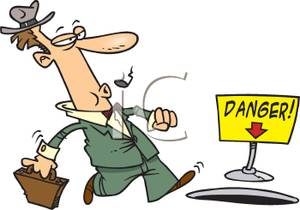 I really wonder if horse owners know how little evidence there really is in favor of routine supplementation for their horses. I mean, it’s not like it’s all that easy to find out. The companies, of course, all make it sound as if the horse couldn’t possibly live without them. Feed stores are lined with the darn things (and frankly feed stores probably would probably have a much more difficult time living without them). Horse magazines are pretty much supported by ads for supplements (as well as other products).. Horse shows? Ever notice the banners, names on jumps, and so forth? Some horse trainers also sell supplements. You can certainly buy them from veterinarians.
I really wonder if horse owners know how little evidence there really is in favor of routine supplementation for their horses. I mean, it’s not like it’s all that easy to find out. The companies, of course, all make it sound as if the horse couldn’t possibly live without them. Feed stores are lined with the darn things (and frankly feed stores probably would probably have a much more difficult time living without them). Horse magazines are pretty much supported by ads for supplements (as well as other products).. Horse shows? Ever notice the banners, names on jumps, and so forth? Some horse trainers also sell supplements. You can certainly buy them from veterinarians.
My point is not that supplements are necessarily always useless (although many of them probably are). My point is that it’s awfully hard for horse owners to find anything other than glowing testimonials for supplements. Good scientific information? Well, not so much… you have to look hard for that, and some people don’t trust science anyway, preferring pretty packaging and flashy ads that have lots of promise, even if they have very little substance. Heck, if science isn’t important, and people have already made up their minds, there’s really not much difference between a feed store employee and a professional anyway.
Well, at least sometimes.
ASIDE: Again, I want to make sure everyone knows that vitamins and minerals are important. It’s just that in most circumstances, the horse’s diet, combined with the horse’s own metabolism, provides everything that the horse needs.
 The companies can say pretty much anything that they want
The companies can say pretty much anything that they want
I really don’t think that most folks realize how much leeway the supplement companies have when it comes to advertising their products. Drug companies have to be very careful in what they say. Supplement companies? Not so much. If you sell supplements, you can sell them using claims about structure and function. So, for example, instead of saying something like, “This product has been shown to be safe and effective for the treatment of this and such,” you can say, “This product supports hoof/gut/immune system/joint health” and you really don’t have to do anything else at all. Heck, you don’t even have to say what the word, “Support” means. And when you do sell your products, you can say things like, “This product is not intended to diagnose, treat, cure, or prevent any disease.” And even with all the meaningless babble, and the disclaimer that the product really doesn’t do anything at all, you’ll still find people lining up to buy them.
People really, really love their horses
I think that most vendors (of just about anything) understand that most horse owners really love their horses, and will do just about anything for them. There’s a certain subliminal guilt-trip out there: “Don’t you want to do everything that you can for your horse?” Of course, the answer is normally a resounding, “Yes!” But if you rephrased the question, if you said, “Hey, do you want to waste money on products that don’t do anything for your horse?” my guess if that there might be a somewhat different response.
- Don’t buy products unless there’s good data to support them (ask for it).
- Don’t go for testimonials, even if it’s from someone whose career you wish you had
- Consult with folks that aren’t trying to sell you stuff before you buy anything, like extension agents, university nutritionists, veterinarians with an interest in nutrition and the like
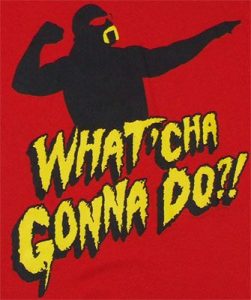 I really do think that horse owners need to think a bit more about what they’re doing when it comes to feeding their horse(s) supplements. But I’m not sure that many will. I think that about the only thing that could be done to protect horse owners is to have more stringent regulations, but a big-money business like supplement manufacturing would surely (and surely has) lobby against that idea. While supplements may not cause much in the way of direct harm (with rare exception), I also don’t think that horse owning should be any more expensive than it has to be.
I really do think that horse owners need to think a bit more about what they’re doing when it comes to feeding their horse(s) supplements. But I’m not sure that many will. I think that about the only thing that could be done to protect horse owners is to have more stringent regulations, but a big-money business like supplement manufacturing would surely (and surely has) lobby against that idea. While supplements may not cause much in the way of direct harm (with rare exception), I also don’t think that horse owning should be any more expensive than it has to be.
